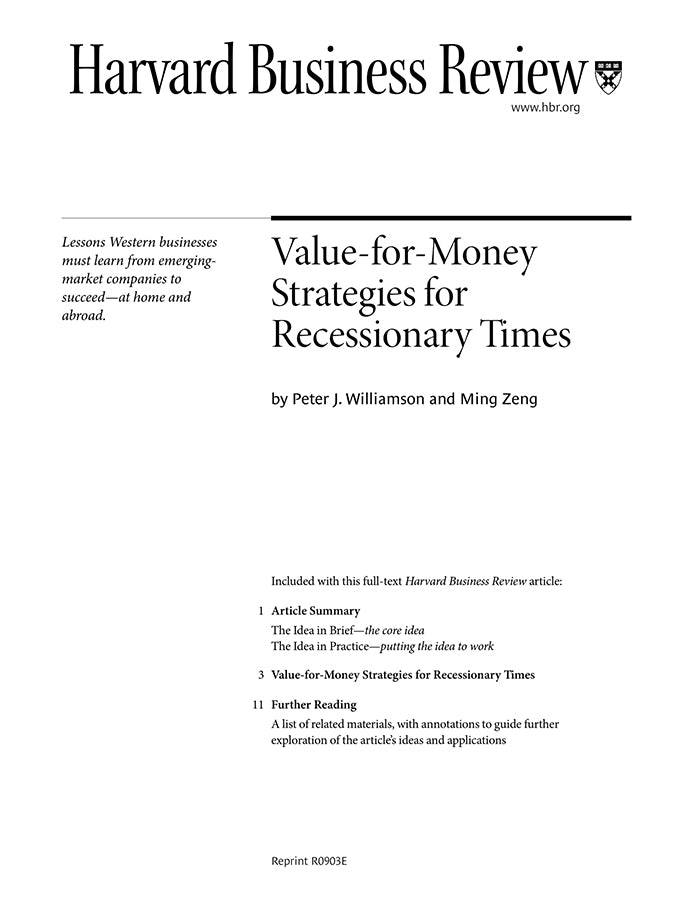Value-for-Money Strategies for Recessionary Times
受取状況を読み込めませんでした
This article includes a one-page preview that quickly summarizes the key ideas and provides an overview of how the concepts work in practice along with suggestions for further reading. In tough economic times, some companies have outmaneuvered rivals to become market leaders through value-for-money strategies. That is, they have enabled recession-hit consumers to economize (do less and spend less), become more efficient (do the same for less), or become more effective (do more but spend no more). To implement such a strategy, argue this British professor and Chinese academic, companies must go beyond refining cost-cutting capabilities to develop expertise in cost innovation. That may not be good news for many U.S., European, and Japanese corporations, because multinationals from emerging markets, which have long experience with value-conscious customers, have already built cost-innovation capabilities that are unlocking mass markets in both developing - and developed - countries. Some, like battery maker BYD, have learned to sell high-tech products profitably at mass-market prices through a combination of lower labor costs and manufacturing innovations. Others, like drinks purveyor United Spirits, have dominated industries by blanketing sizable niches in their home markets with a full range of products or customized options. And still others, like appliance manufacturer Haier, have used low-price offerings to turn small, unguarded niches into mass markets in developed countries. In response, the authors argue, Western companies should turn to developing countries for vital lessons in lowering the cost of building brands and developing and manufacturing products. They should enter into alliances with emerging giants to gain cost-innovation capabilities. And they should use their superior financial strength to beat emerging giants at their own game of growing mass markets in developing countries. Multinationals that fail to learn from emerging rivals are unlikely to weather the recession well - or stay competitive for very long.
【書誌情報】
ページ数:16ページ
サイズ:A4
商品番号:HBSP-R0903E
発行日:2009/3/1
登録日:2012/3/28


